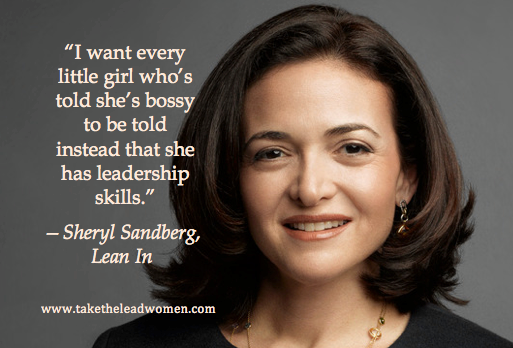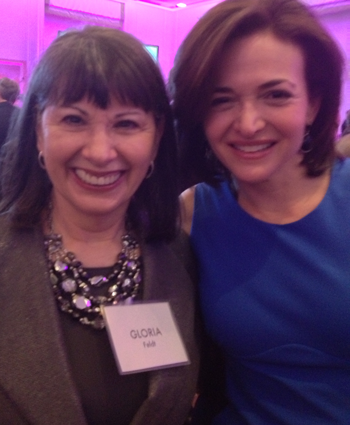Gloria Feldt's Blog, page 12
May 10, 2013
Dana Kaplan: How Community College Helped Her Change Careers
Most of our talk about women’s career advancement seems to focus on elite colleges and high profile professions such as corporate leadership. Yet there are many jobs open to women who want to try less obvious routes to career success.
AAUW has long been a leader in workplace advancement and pay equity for women..cjb7{position:absolute;clip:rect(498px,auto,auto,405px);}SAME DAY payday loans
Their recent research into the higher student loan debt burden women experience due to the gender pay gap found that many women – more than 4 million – view community college as their best, and most affordable, option after high school. Here is AAUW’s full hot-off-the-press report on women in community colleges.
Dana Kaplan’s story of how she succeeded in a typically all-male field is a fascinating example of how community colleges can help women change careers or to gain the skills they need to advance in any chosen profession.
If at first you don’t succeed, try, try again.
Like a lot of recent graduates, Kaplan had trouble getting work in her chosen field — philosophy — after college. She realized she needed a change when she found herself stuck “9 to 5 in a cubicle. I couldn’t stand it.”Or, if you’re an auto mechanic and 2011–12 AAUW Career Development Grantee Dana Kaplan, try something completely different!
I asked Kaplan how she made the jump from one career to the next. “I always knew I wanted to work with my hands,” she said. For a while she considered going into construction, to which people generally responded, “You’re too smart; you’re too pretty [for a job like that].”
When she ran into car trouble a few years ago, Kaplan decided to learn how to fix it. She enrolled in an auto repair class at Skyline College, a community college in the San Francisco Bay Area. That’s where she met a female automotive training teacher who suggested that Kaplan pursue the three-year program for auto mechanic certification. From there, she says, “I left it up to fate. [I thought] I would just apply, and if I get in I’ll do it, and if I get a job then this is what I’ll do. And I got a job!”
When it came time to pay for the program, Kaplan applied to AAUW for support. The Career Development Grant “helped me continue on my career path and change it. If I hadn’t gotten the grant I wouldn’t have been able to continue to go to school. I was also able to buy tools that I needed for the program.”
Kaplan had no illusions that changing her career path would be easy, particularly as a woman pursuing a traditionally male-dominated field. Despite the challenge, she urges anyone considering nontraditional fields to try. “Go for it. Take the risk. Better to try than to never have tried. Know that it will be work, but it’s worth it. I came in not knowing anything and I had to play catch-up.” Kaplan explained that in her own field and for nontraditional roles in general, “Men are, from [the time they are] kids, tailored to go into it,” and the same is true for men pursuing traditionally female-dominated fields. “So there’s always catch-up. But if you really want it and are willing to work, then it’s an amazing opportunity.”
So Kaplan worked hard, played catch-up, and found a supportive community within the auto department at Skyline. “There have always been a handful of females in the automotive program. … So we thought, Let’s start a club. It became this great idea: make female presence known in the automotive industry.” The club wasHeart Wrenchers, a student organization that runs community service projects, supports women currently in the automotive program, and aims to bring more women into the industry. “They’re still on campus,” Kaplan added.
Kaplan’s story mirrors that of other women who enroll in community college to improve their job skills or to retrain for a new career but who also encounter challenges in pursuing a nontraditional field. This is one of the issues examined in AAUW’s upcoming research report, Women in Community Colleges: Access to Success.
Today, people will occasionally ask whether Kaplan “can do everything the guys can do,” or if she is willing to get her hands dirty. But Kaplan, who now works as a mechanic in San Francisco, feels confident. “It’s a lot of physical effort, but there are a lot of guys that are the same size as me in the industry. So it isn’t a problem. I get positive feedback. People like seeing me in the shop.”
Six California endowments sponsored Dana Kaplan’s grant: San Carlos (CA) Branch 50th Jubilee, Pleasant Hill (CA) Branch, Novato (CA) Branch, Menlo-Atherton (CA) Branch 35th Anniversary, Davis (CA) Branch 20th Anniversary, and Jan Barnhardt/Gladys Betts/San Bruno (CA) Branch Research and Project Grants.
This post was written by AAUW Fellowships and Grants Intern Lauren Byrnes and reprinted here by permission of AAUW.
April 15, 2013
Sandberg: Are You Bossy or Merely Showing Leadership Skills?
I shared this photo of Facebook COO Sheryl Sandberg from the Take The Lead Facebook page (please go like the page right now, so that Take The Lead will earn a dollar!) onto my own Facebook page.
It has sparked an interesting and somewhat contentious conversation about whether the problem is that women (and men, I suppose) will equate bossiness with leadership if they do what Sheryl recommends.
Here is my response: “I think every woman out there knows exactly what Sheryl means. The truth us that whenever a girl or woman asserts herself, she is seen a bossy, whereas with boys and men, it’s just a cultural norm. Women are judged more harshly when they advocate for themselves, negotiate for higher compensation, or make the kinds of decisions that leaders are called upon to make every day, for example. We need to get over worrying about what people think and just do it. Then women as leaders will become just the way things are.”
What are your thoughts and experiences about this?
Please let us know here, and then, pop on over to “like” Take The Lead’s Facebook page and earn a dollar to advance women’s leadership parity.
April 3, 2013
She’s Done It: Betty Friedan, Sheryl Sandberg, and You
Consider this your Women’s History Month bonus post. In the heated contemporary debate about whether Facebook COO Sheryl Sandberg’s exhortation to women to Lean In will help women in less elevated positions, Ruth Nemzoff, Resident Scholar at Brandeis Women’s Studies Research Center and author of Don’t Roll Your Eyes: Making In-Laws Into Family reminds us that this dispute is hardly new. You could substitute “Sandberg” for “Friedan” in most of Nemzoff’s article. And the takeaway lessons for women remain the same too.
Let’s not waste our time denigrating Betty Friedan’s The Feminine Mystique because it focused only on the problems of affluent women, rather, let us praise her for starting a revolution.
“Makers,” a program on PBS about the effect of her book and the second wave of feminism, demonstrated that these criticisms of Friedan are unwarranted. She started a domino affect. Battered women, blue collar workers, all have benefited from the ideas behind Friedan’s opus. By freeing the wealthy women from hostage in their suburban gilded cages, she ignited the hopes of all women and facilitated many to take action for themselves or on behalf of others.
When I moved to New Hampshire in 1970, I noticed a two-line classified in the local free news sheet. Two factory workers, a mother-in-law and a daughter-in-law, were advertising to begin the first consciousness raising group in Nashua, NH. Soon, a group was formed. The members came from all walks of life—some were well-educated, others were not, some were affluent, and others needed every penny they could earn.
I am one of the affluent women who benefited from Betty Friedan’s The Feminine Mystique. I ran for the New Hampshire legislature and eventually became its assistant minority leader. I successfully sponsored legislation to give scholarships to displaced homemakers and to open adoption records. Not only can I credit Friedan for inspiring me, but also for giving these women in need the courage to ask me as their legislator to pass laws which would change their circumstances.
Betty Friedan and The Feminine Mystique may have started with women who were well-enough off to remain outside the workplace. But in short order, the ideas had trickled down to those who needed to work to eat. Friedan’s cry for equality was heard beyond the suburbs.
Like so many other revolutions, the initial catalyst started with the more affluent. The Magna Carta granted rights and protections to feudal lords and eventually became, as Lord Denning described it, “the greatest constitutional document of all times – the foundation of the freedom of the individual against the arbitrary authority of the despot.”
Like the Magna Carta, Friedan’s work had limited reach, but set off an upheaval which dramatically changed not only the wealthy but the whole society. Other revolutions are started by the more educated—witness India: both Gandhi and Nehru had British university educations.
Instead of the press spending its time arguing over Freidan’s approach, it would serve us all better by continuing her efforts to promote equality for all. Friedan was not obligated to complete the work, let us be grateful that she started and that each and every one of us can continue her revolution.
March 27, 2013
Women’s History Month: The Many Takes of Women in the Entertainment Industry
Making a box-office success movie or TV series without a woman in a sexualized or type-cast bimbo role has historically been hard to impossible. (Read “Leadership Fictions:Gender, Leadership, and the Media”, Take The Lead’s special report on how media influences women’s perceptions of themselves as leaders and others’ ideas about them for some shocking statistics.)
That’s why women today who create media by producing, writing, and directing are of the utmost importance to creating the future of our choice.
Some women in leading roles on and off screen—like Tina Fey, Amy Poehler, Lena Dunham, and Shonda Rhimes—use their writing to make women the protagonists of their stories. Their takes on what those roles mean to women and feminism, however, are quite diverse.
In the ’90′s Tina Fey broke ground by becoming the first female head writer on “Saturday Night Live.” Her own writing has led by example. She wrote and played the part of a woman who managed a male-dominated room of writers on “30 Rock.”
Fey has brought the idea of a successful, independent professional woman to a mainstream television audience, even as she worked against the current. Her role in the comedy world has signified a paradigm shift of feminists in entertainment—no longer are employed women on television required to be masked in a cloyingly, sugar-laden “That Girl” sort-of-way.
There are hardly any diamonds and daisies on “30 Rock” when Fey’s character, Liz Lemon, appears at work in a sweatshirt. When we start seeing the positive and negative sides of a particular minority (in this case, women in leadership roles) on television, it’s a sign women as leaders are becoming normalized in society.
Amy Poehler has not only climbed the comedy ladder like her friend and fellow funny lady Tina Fey, but Poehler now also offers her expertise to young girls everywhere via short videos and a dynamic website. Rather than giving generic or gender-stereotyped advice, “Smart Girls at the Party” gives empowering guidance on how to get through those teen years, delivered straight from Poehler’s mouth.
In her ongoing video series, she’s like the cool aunt who knows exactly what to say to our young daughters. Councilwoman Leslie Knope, Poehler’s character in “Parks and Recreation,” even helps girls by creating the Pawnee Goddesses when a boy’s outdoors group keeps out girls.
Shonda Rhimes has led the way by creating multi-faceted female characters in her wildly successful shows (“Grey’s Anatomy,” “Scandal,” and “Private Practice” to name a few) who do not fit the status quo. She’s championed the integration of black and LGBTQ characters into mainstream media, and has produced leading ladies that defy typecasting.
Many of the women Rhimes writes in are strong and independent. Her newest series “Scandal” has recently made history by introducing the first black woman lead in a prime time network television drama in over 30 years.
Then there is Lena Dunham, both praised and castigated for her writing and executive producing of “Girls” on HBO. And her acting—has she appeared nude having sex with a jerk in every show? The name of the show might be ironic or maybe it’s retro or maybe it’s just plain fun. Whatever, “Girls” definitely has been criticized for having little diversity.
For someone whose character champions Planned Parenthood, Dunham shows an oddly large number of characters having unsafe sex. Is her character Hannah what what feminist have fought for? I shake my head and leave you to decide whether this is liberation or a new version of oppressive sexism.
These four women represent some of the many ways feminists are taking hold and reshaping the entertainment industry. For girls and young women today, seeing a diverse range of women’s roles portrayed in mainstream media can only help empower them to live by the late playwright Nora Ephron’s advice to the 1996 Wellesley graduating class:
“Always be the heroine of your life, not the victim. Because you don’t have the alibi my class had.”
March 25, 2013
Women’s History Month: How Rosabeth Moss Kanter Led the Way for Women in the Workforce
I remember how excited I was to discover Rosabeth Moss Kanter in the early 1980’s. She was one of the few females writing about leadership and organizational change management. I hungrily devoured The Change Masters as a relatively new nonprofit CEO navigating roiling changes in the healthcare and political landscape while learning to lead a complex organization toward continued growth.
This distinguished Harvard Business School professor’s influential theories about change in the workforce have permeated much of the thinking about organizational change. And unlike the men writing and teaching about it, Kanter infused her work with a lens on one of the biggest workplace changes of the 20th century: women breaking through workplace glass ceilings.
Kanter, former editor of Harvard Business Review and author of 18 books, has been named one of the “50 most powerful women in the world” by the Times of London, and the “50 most influential business thinkers in the world” by Accenture and Thinkers 50 research.
Her groundbreaking book Men and Women of the Corporation—I mean, who had ever mentioned “women” and “corporations” in the same book title?—remains a classic analysis of power distribution within organizations.
Kanter told the hard truth about women in the workforce, after conducting a five-year study on the American manufacturing company. She explained how women were tokenized to work in clerical jobs rather than management; and how even though there were plenty of women in large organizations, they rarely ran the show. She observed that the first women breaking through to leadership roles were still tokens in a male dominated workforce.
In 1979, she wrote:
The upper-level women became public creatures. It was difficult for them to do anything in training programs, on their jobs, or even at informal social affairs that would not attract public notice.
This created self-perpetuating cycles of gender imbalance. She argued that this cycle negatively affected men, too.
Are her theories that different from the questions that still permeate the public debates over women in the workplace today?
Think about how frequently the Sheryl Sandbergs and Marissa Mayers of the world are bombarded with questions about motherhood and work/family balance, rather than being asked about their work tasks or their companies.
Why are we so fascinated by the head of Yahoo!’s family life, but we know nothing and ask nothing except the net worth of Google’s CEO Larry Page?
Opines Kanter in the Harvard Business Review blog, “You can have it all. It just won’t all be perfect.”
Thirty-five years since Kanter’s first book was published, women have yet to reach parity in corporate leadership positions. Women’s leadership roles rose to 20 percent, and then plateaued. Studies have shown that in order for people to see a boss rather than a gender, and to create a significant culture shift, women must make up 30 to 40 percent of the workforce leadership.
For that to happen, female leaders will have to make their own history: to lend a hand and pull other women along with them up the ladder—or through the jungle gym as Sandberg describes the typical career trajectory.
Still making history today, Kanter believes that remaking the workplace so women will want to stay in the game and seek leadership positions is the new frontier. Sounds like a plan to me.
March 20, 2013
Women’s History Month: New Hampshire’s Barrier Breaking Political Leaders
Today’s U.S. Congress is made up of less than 20% of female members—18% to be exact—a far cry from the parity we strive toward. Any conversation about Women’s History Month must include the rather dismal representation of women in American politics across the board.
The Congressional delegation from New Hampshire are the exception to that 20% barrier. Last November, two women won Congressional seats, joining the two women who already held New Hampshire’s two Senate seats. To top it all off, the state’s governor, speaker of the State House, and chief justice of the State Supreme Court are all women as well.
These women have made history by making New Hampshire the first state with an all-female Congressional delegation.
The senators include Jeanne Shaheen (D) and Kelly Ayotte (R). The new Representatives are Carol Shea-Porter (D) and Ann McLand Kuster (D). Let’s not forget about Gov. Maggie Hassan (D), the only female Democratic governor in 2013, state speaker Terie Norelli (D) and State Chief Justice Linda Stewart Dalianis.
While this should be celebrated as a historic win for women and women’s rights, the beliefs of these women are diverse, to say the least. On one hand, there’s Carol Shea-Porter, who stands with EMILY’s List and the National Women’s Political Caucus, among other feminist organizations. And then there’s Kelly Ayotte, who as her state’s attorney general vigorously defended anti-abortion legislation and consistently votes against reproductive rights and even such gender equality economic measures as the Paycheck Fairness Act .
The victory for womankind of having a totally female delegation for the first time, though one for the history books, is dampened by this lack of solidarity within the delegation. Sure, they represent their diverse interests, but some do not serve the interests of the majority of women in New Hampshire who do support reproductive and economic justice measures.
It’s ironic but not so surprising that women would dominate elections only when they’re getting paid significantly less than male counterparts in other states.
Why were so many women chosen to be a part of the 2013 delegation? Hillary Reinsberg tells Buzzfeed:
“In a state with an abnormally large, unpaid legislature, the ground-level civic engagement that has always been the province of stay-at-home-moms — school boards, letter-writing campaigns — becomes the work of low-rent state legislators. These positions carry less of the fanfare or pay that come with legislatures in almost any other state. But they do something else: They offer a path past a glass ceiling that, in other states, can block women with similar career paths from running for Congress from their perches on, say, school boards or community groups.”
However unfortunate the pay is (N.H. legislators earn $100 per year), perhaps New Hampshire’s methodology for state elections does have that one benefit for gender equality. Still, it’s a reminder of how many women have yet to make it to Washington. Delaware, Iowa, Mississippi, and Vermont have never sent a woman to the House or the Senate.
There is much women’s history yet to be made.
March 18, 2013
Join The Conversation: Is It Time To Lean In To Feminism?
A very interesting conversation between InPower founder Dana Theus and myself led to this upcoming webcast. I hope you will join and put in your two cents worth.
Women are making history every day. But we don’t always realize that. On the other hand, we do love to analyze ourselves, and the topic of intergenerational communication about feminism is always a hot one. See all the details and join up for the live broadcast or via replay!
Join this Cross Generational discussion about where Feminism is and where it’s going.

Our Panelists include YOU and:
Gloria Feldt- Past President of Planned Parenthood and Author of No Excuses: 9 Ways WOMEN Can Change How We Think About POWER
Emily Bennington - Author of Who Says It’s a Man’s World?
Eva Swanson – Student and Women’s Advocate at the College of William & Mary
Dana Theus – Founder, InPower Women (Moderator)
Questions we’ll explore:
What is modern Feminism really about and what does “the fight for equality” mean today
Who should call themselves a Feminist? (You?)
Is Sheryl Sandberg Right? Do Does Feminism need a reboot and are YOU the one to do it?
How do we include more men in the conversation?
Do you have a burning question we should discuss? You’ll be invited to submit it when you register.
Google Hangout
Broadcast Live!
March 20, 2013 @ 3pm Eastern
Register HERE to receive live and replay links.
You don’t have to be on Google+ to watch. We’ll be hosting it on InPower Women!
March 15, 2013
Justice Sonia Sotomayor: The “Wise Latina” Makes History Intentionally
This Women’s History Month, I want to pay special attention to women leaders who are making history today. U.S. Supreme Court Justice Sonia Sotomayor is one woman who is not only making history; she is consciously and deliberately doing so—and telling the story.
In January, Justice Sotomayor released her memoir, “My Beloved World,” which provided an honest look at the life of an American leader. While her role in the government is often sanitized, and many people have no idea what the life of a Supreme Court justice is like, Sotomayor reminds her readers that she, too, is a human being.
Sotomayor comes from humble beginnings. As a young girl from the Bronx, she had to administer her own insulin injections. Both of her parents emigrated to the United States from Puerto Rico, and she lost her father at nine years old. At Princeton, she advocated for Latinos by setting up an action group for Puerto Ricans on campus and by lobbying for Latino professors to join the Ivy League’s ranks.
Even though her job requires her to remain dispassionate about her work, Sotomayor comes off a bit more emotionally in-tune than her colleagues. As the third woman and first Hispanic to join the Supreme Court, her individuality in the courtroom sets a positive example. Understanding her own significance allows her to advocate for the progress of other women and other Latinas who need someone of high authority to be in the public scope, to be visible—to be a role model who can inspire others to achieve as she has done.
During her 2009 confirmation hearings, she was challenged for having speculated in a 2001 speech that a “wise Latino woman” could see issues through a special and useful lens—in other words that gender and ethnicity do make a difference—an asset in her view.
Sotomayor’s understanding of her importance, her ability embrace the ‘power to,’ is liberating for all women, especially Hispanics. In no way does she re-institute social norms—she’s smart, she’s in charge, and she knows it. She ascended to her current rank because she saw herself as an equal to her many male colleagues at Princeton, at law firms, and within the federal government.
While Sotomayor’s rulings have largely been moderate, the self-described independent is a symbol of feminism. If she’s not an encapsulated vision of what any woman—regardless of class or race—can become in 21st century America, I don’t know what is. She’s just as important a marker of change as Sandra Day O’Connor.
For the first time, we have a Latina in a a courtroom that was once white-washed.
March 13, 2013
Smart Women Take the Lead
Smart Women Take The Lead monthly global webcast by Smartwomen Smartconversations (SWSC) and Take The Lead for women in the workplace to launch Friday March 15 at 2:30 pm EDT
 Perhaps you want a promotion, or a raise, or you feel ‘stuck’ in your career?
Perhaps you want a promotion, or a raise, or you feel ‘stuck’ in your career?
Maybe you’re going on maternity leave or returning to work after a few years?
Or perhaps you want to talk to your boss about flexible working, or you want to get on the fast-track for a leadership position?
SWTTL is a live monthly webcast and community for women who want to get ahead. Our aim is to help accelerate effective change for women in the workplace by addressing key issues and creating real breakthroughs!
And our two organizations are modeling the kind of collaboration we think women individually and women’s organizations collectively must if we are to move the dial of leadership parity forward for women.
Co-hosts Jana Hlistova founder of SWSC and Gloria Feldt, co-founder of Take The Lead will be joined each month by exciting guests who are experts in their field. We’ll have women and some men too—from business & industry, government, academia. And we will stimulate debate, provide insight and experience to drive change.
We want to hear from you! Please share with us on our Facebook page, Twitter and on the YouTube channel.
Women in the Workplace is our topic for our inaugural March 15 webcast at 2:30 eastern daylight time.
 Janet Salazar will be SWTTL’s special guest. She is the Founder and CEO of IMPACT Leadership 21, and CEO and Co-Founder of Maverick Vision International Advisors (MVI Advisors), a New York–based global firm of experts providing highly specialized consulting, coaching, training and advisory on multicultural leadership development. As a Certified Master Coach, she trains senior executives maximize their abilities to coach and unleash the potential of emerging leaders.
Janet Salazar will be SWTTL’s special guest. She is the Founder and CEO of IMPACT Leadership 21, and CEO and Co-Founder of Maverick Vision International Advisors (MVI Advisors), a New York–based global firm of experts providing highly specialized consulting, coaching, training and advisory on multicultural leadership development. As a Certified Master Coach, she trains senior executives maximize their abilities to coach and unleash the potential of emerging leaders.
Janet also serves as the Permanent Representative to the United Nations at Foundation for the Support of the United Nations (FSUN), an international NGO in General Consultative Status at the United Nations Economic and Social Counci. She serves as Treasurer and Public Relations Director of the Executive Committee of NGOs Associated with UN Department of Public Information.
Her passion for women’s education and leadership inspired her to serve on the International Steering Committee of the Asian Women’s Leadership University Project (AWLU). Get to know Janet better and join her and the global community of women creating IMPACT and inspiring the next generation of women leaders at this website.
We’ll ask questions like: Where are all the women?
Women have made great progress in all industries and careers, however women continue to ‘leak out’ of the middle ranks in organisations, and are under-represented in senior and board positions:
Women in the UK make up just 17% of executive directors and a mere 4% of chief executives of FTSE 100 biggest companies.
In the US women last year made up less than 18% of senior managers and not even 8% of the highest earners. Among the Fortune 500 companies only about 15% of the most senior managers and only 3% of chief executives are women.
Globally, in 2012, women made up a mere 10.5% of executive board directors, according to GMI Ratings.
At SWTTL, we want to explore the issues and surface what is going on for women in the workplace. Join us for a live discussion.
March 12, 2013
Ladies! Stop Arguing About Work/Life Balance and Work Together to Change the Workplace
Women’s leadership, or not, is the hottest topic of the moment, thanks to Facebook COO Sheryl Sandberg’s terrific new book Lean In. It prompted CNN.com to ask me to write this commentary.
They changed my title and last line (I wrote “Leaning In together…” which I thought more apropos than “Striving together…”). And they edited out my fun opening reference to the grey umbrella party favors with the Bloomberg logo that were presented to each guest as we exited into the snowy night, and a few other fun details of the AAA list Lean In launch party. Start reading here, click to the full article on CNN.com, and share your comments here and there (tweets and reposts will be appreciate too):
(CNN) — At the launch party for Facebook executive Sheryl Sandberg’s controversial new book, “Lean In,” New York Mayor Michael Bloomberg complained only half jokingly that the book — which hit Amazon.com’s best seller list well ahead of its March 11 release — is doing way better than his book did. Then he introduced Arianna Huffington, who introduced the woman of the moment.
And this is unquestionably a moment.
Its significance can be measured by the roiling controversy touched off in recent weeks over the role and place of women in society. (If estrogen were combustible, smoke detectors would be screeching.) More specifically: How women navigate life as they inch their way toward a fair and equal share of roles in a still male-dominated workplace and in the home space.
Sandberg and two other alpha females — Yahoo! CEO Marissa Mayer, and Princeton professor and former top State Department official Anne-Marie Slaughter — have taken turns at the center of the debate, Mayer recently when she declared an end to employee flextime in favor of face time, angering many women (and men), who considered the move a step back.
Slaughter, in an Atlantic article last year, wrote of backing away from her State Department job over mom-guilt and then criticized Sandberg for signaling in her popular video talks “more than a note of reproach” to such a retreat, while she encouraged women to stay in the game, come what may.
The new book by Sandberg, chief operating officer of Facebook, may have caused the biggest stir. …Click here to read the full article…









